Foundation Year
The English curriculum is built around the three interrelated strands of language, literature and literacy. Teaching and learning programs should balance and integrate all three strands. Together, the three strands focus on developing students' knowledge, understanding and skills in listening, reading, viewing, speaking, writing and creating. Learning in English builds on concepts, skills and processes developed in earlier years, and teachers will develop and strengthen these as needed.
In the Foundation year, students communicate with peers, teachers, known adults and students from other classes.
Students engage with a variety of texts for enjoyment. They listen to, read and view spoken, written and multimodal texts in which the primary purpose is to entertain, as well as some texts designed to inform. These include traditional oral texts, picture books, various types of stories, rhyming verse, poetry, non-fiction, film, multimodal texts and dramatic performances. They participate in shared reading, viewing and storytelling using a range of literary texts, and recognise the entertaining nature of literature.
The range of literary texts for Foundation to Year 10 comprises Australian literature, including the oral narrative traditions of Aboriginal and Torres Strait Islander Peoples, as well as the contemporary literature of these two cultural groups, and classic and contemporary world literature, including texts from and about Asia. Literary texts that support and extend Foundation students as beginner readers include decodable and predictable texts that range from caption books to books with one or more sentences per page. These texts involve straightforward sequences of events and everyday happenings with recognisable, realistic or imaginary characters. Informative texts present a small amount of new content about familiar topics of interest; a small range of language features, including simple and compound sentences; mostly familiar vocabulary, known, high-frequency words and single-syllable words that can be decoded phonically, and illustrations that strongly support the printed text.
Students create a range of imaginative, informative and persuasive texts including pictorial representations, short statements, performances, recounts and poetry.
(source: www.australiancurriculum.edu.au)
Achievement Standard
Receptive modes (listening, reading and viewing)
By the end of the Foundation year, students use predicting and questioning strategies to make meaning from texts. They recall one or two events from texts with familiar topics. They understand that there are different types of texts and that these can have similar characteristics. They identify connections between texts and their personal experience.
They read short, decodable and predictable texts with familiar vocabulary and supportive images, drawing on their developing knowledge of concepts of print, sounds and letters and decoding and self-monitoring strategies. They recognise the letters of the English alphabet, in upper and lower case and know and use the most common sounds represented by most letters. They read high-frequency words and blend sounds orally to read consonant-vowel-consonant words. They use appropriate interaction skills to listen and respond to others in a familiar environment. They listen for rhyme, letter patterns and sounds in words.
Productive modes (speaking, writing and creating)
Students understand that their texts can reflect their own experiences. They identify and describe likes and dislikes about familiar texts, objects, characters and events.
In informal group and whole class settings, students communicate clearly. They retell events and experiences with peers and known adults. They identify and use rhyme, and orally blend and segment sounds in words. When writing, students use familiar words and phrases and images to convey ideas. Their writing shows evidence of letter and sound knowledge, beginning writing behaviours and experimentation with capital letters and full stops. They correctly form known upper- and lower-case letters.
(source: www.australiancurriculum.edu.au)
- Free Plan
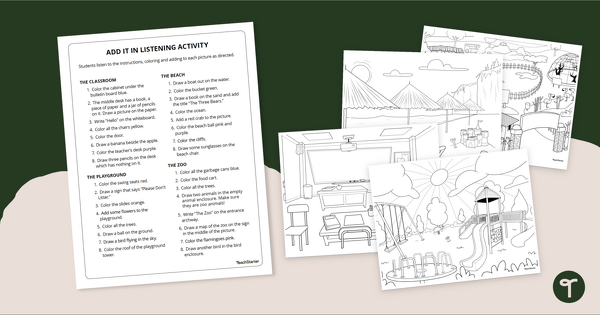
Add It In - Draw and Listen Activity
Practise following directions with a free draw and Listen Activity from Teach Starter.
- Free Plan
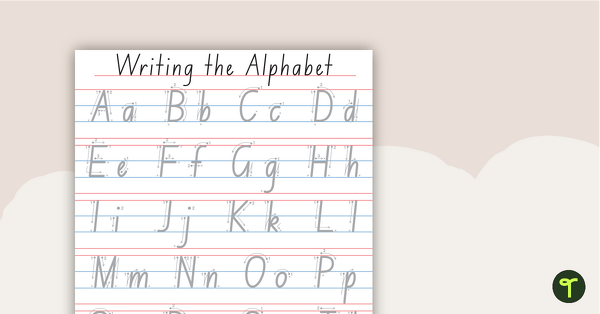
Writing the Alphabet Chart - Tracing
A chart to assist students when learning how to form letters.
- Free Plan
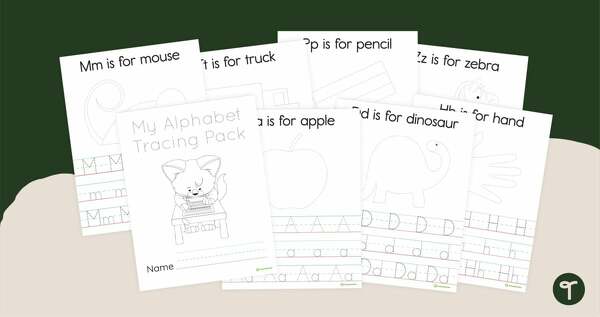
Free Letter Tracing Worksheets - State Fonts
Use letter tracing worksheets to help your students develop their handwriting and fine motor skills.
- Plus Plan
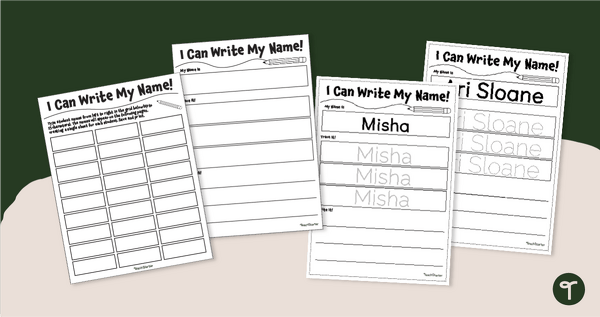
Name Tracing Worksheets - Auto-Fill Handwriting Sheets
Use our Auto-Fill Name Tracing Worksheets PDF to easily create name tracing worksheets.
- Plus Plan
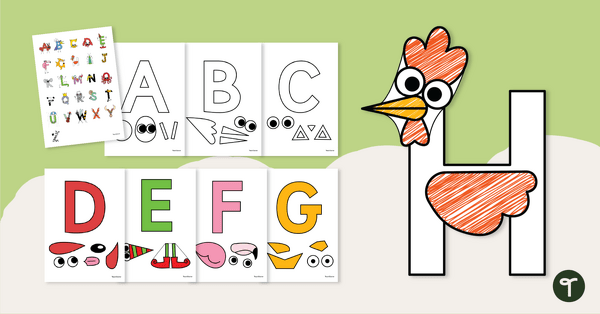
Alphabet Craft Printable Templates
Assist young students with letter recognition, phonemic awareness, and fine motor development with these adorable alphabet craft templates.
- Plus Plan
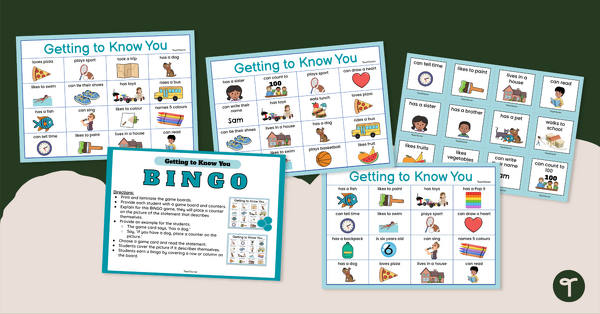
Get to Know You Bingo Game
Start your year off right with an engaging Get to Know You bingo game designed for foundation and year 1 students.
- Free Plan
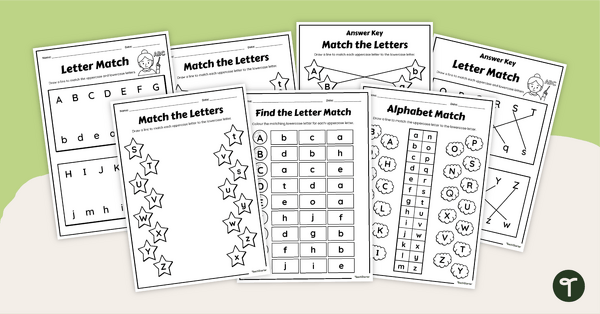
Uppercase and Lowercase Matching Worksheet Set
Use these uppercase and lowercase matching worksheets to help students identify and name both forms of each letter.
- Free Plan
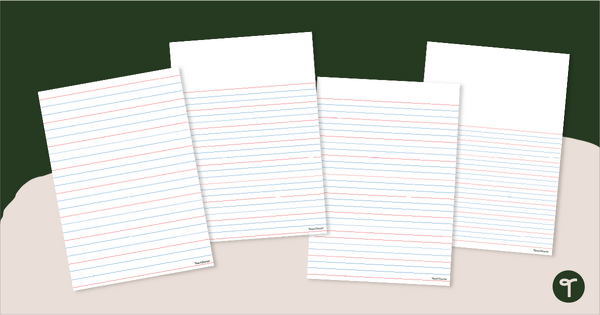
Printable Paper with Handwriting Lines - PDF
Use these printable red & blue lined handwriting paper templates to develop your students' penmanship skills in the early years' classroom.
- Plus Plan
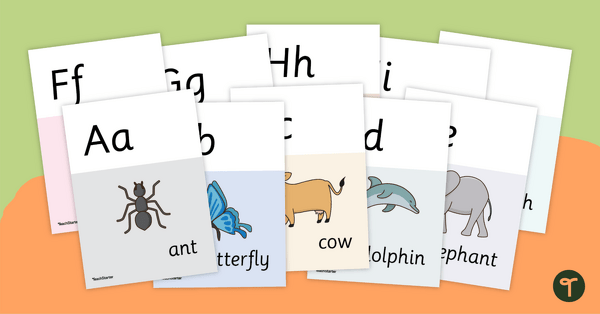
Animal Alphabet Display Posters
An A to Z of animals in 26 vibrant posters.
- Plus Plan
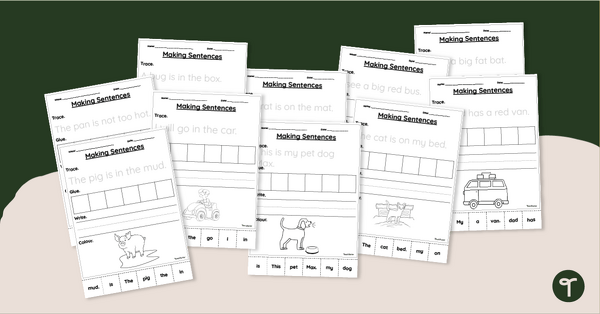
Cut and Paste Sentences Worksheets (F-1)
Practise making simple sentences with a set of printable Cut and Paste Sentence Worksheets.
- Plus Plan
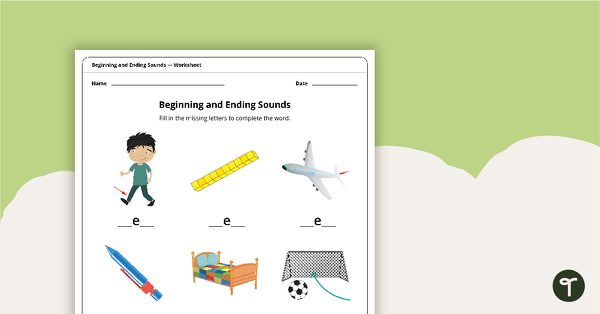
CVC Beginning and Ending Letters Worksheet Pack
Practise identifying missing beginning and ending sounds and letters in this set of 10 CVC worksheets.
- Plus Plan
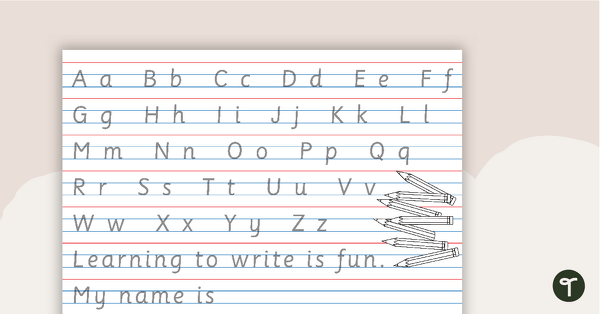
Alphabet Handwriting Sheet - 1 Page
Handwriting sheets with the alphabet and some words for students to trace.
- Plus Plan
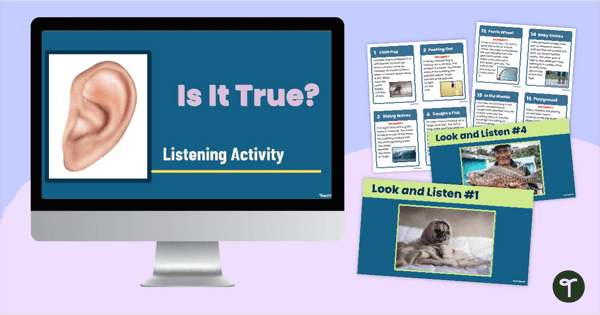
Is It True? Active Listening Activity
Improve listening skills in the classroom with an engaging 'Is It True?' Active Listening Activity.
- Plus Plan
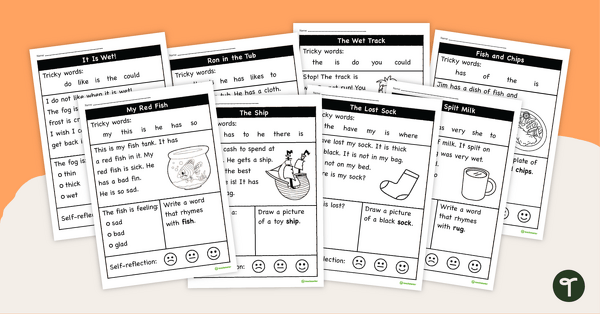
Decodable Text Worksheets – Common Consonant Digraphs (Set 1)
A set of 10 decodable text worksheets for early readers.
- Plus Plan
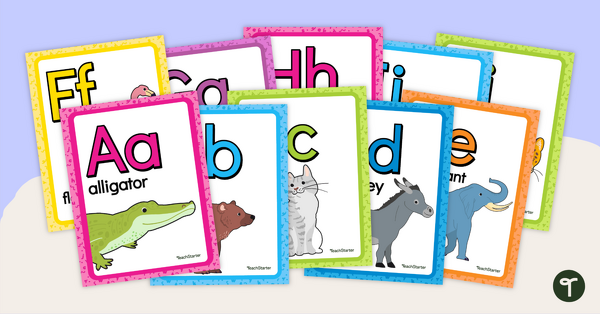
Rainbow Alphabet Display - Animals
Display these rainbow-themed alphabet posters with animals in your classroom.
- Free Plan
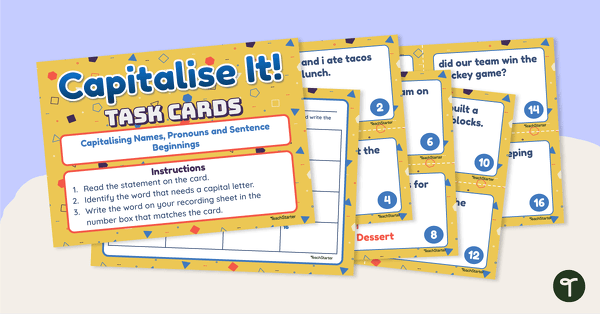
Capitalise It! Task Cards
Reinforce capitalisation of proper nouns, the pronoun ‘I’ and the beginning of sentences with this set of task cards.
- Plus Plan
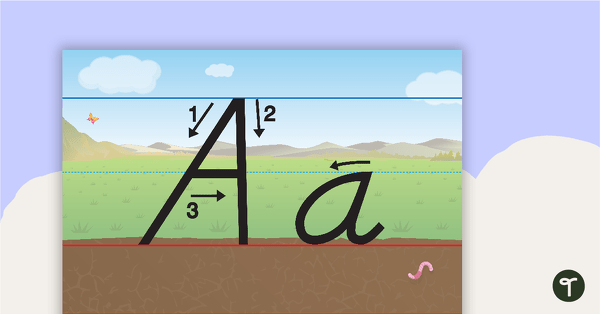
Handwriting Posters - Dirt, Grass and Sky Background With Arrows
Handwriting posters using a dirt, grass and sky background with arrows.
- Plus Plan
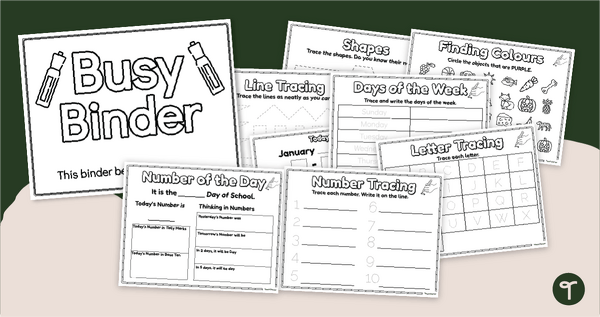
Busy Binder - Morning Work Pages for Kindergarten
Review daily calendar, maths, literacy, and fine motor skills with a printable morning work pages for kindergarten!
- Plus Plan
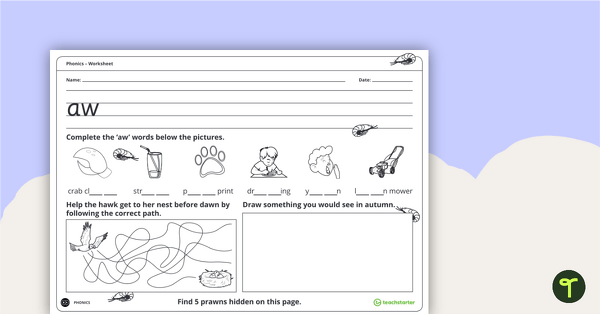
Digraph Handwriting - Worksheets
24 digraph worksheets that focus on handwriting and vocabulary activities.
- Plus Plan
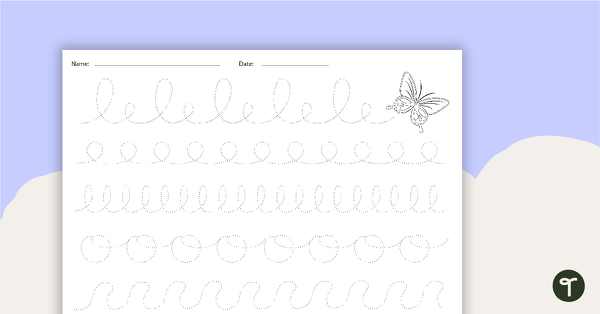
Pre-Handwriting Worksheets
A collection of 18 pre-handwriting skill sheets with a range of different techniques and themes.
- Plus Plan
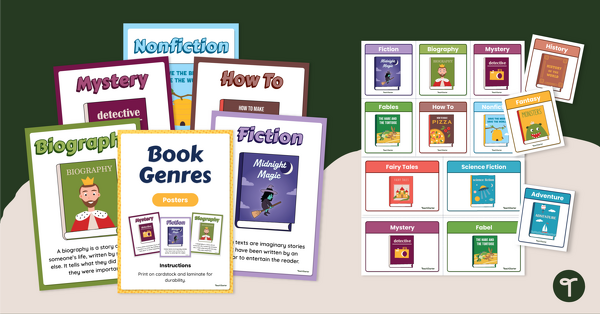
Book Genre Posters and Labels
Brighten up your classroom or library while helping students identify the genre of book for kids with this eye-catching Book Genre Posters and Labels pack!
- Plus Plan
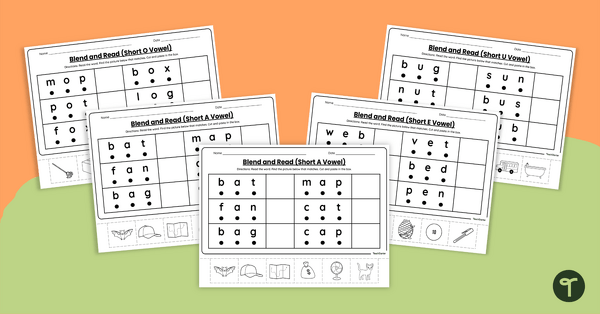
CVC Word Blending Cut and Paste Worksheets
Help students practise blending and reading CVC words with this set of 6 cut-and-paste worksheets.
- Plus Plan
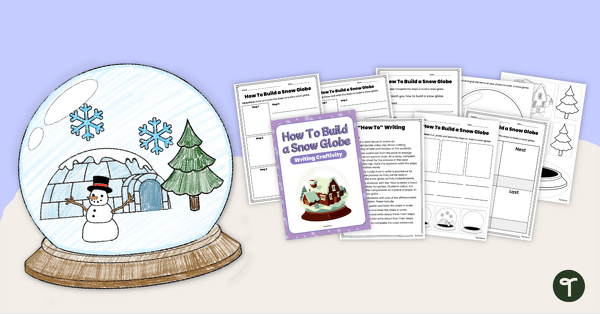
How To Build a Snow Globe – Procedural Writing Craftivity
Use this engaging, hands-on snow globe craftivity to teach your students all they need to know about procedural writing!
- Free Plan
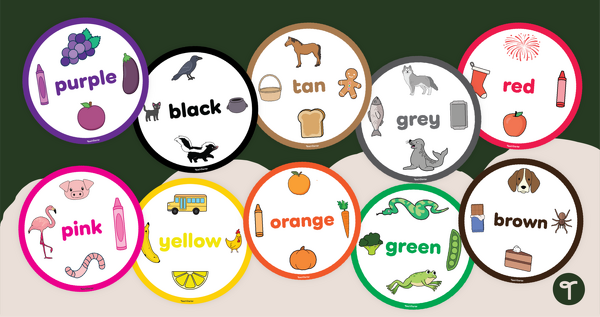
Classroom Colour Charts
Promote colour recognition in your preschool classroom with printable colour word charts with images.
- Plus Plan
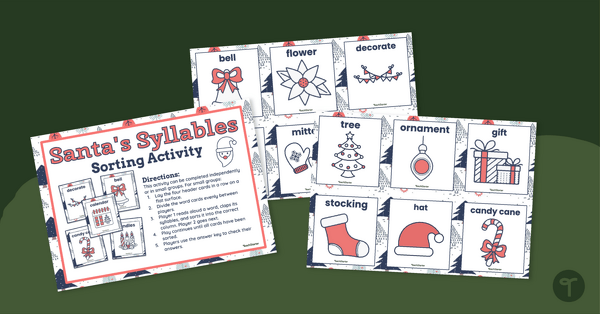
Santa's Syllable Sort - Christmas Reading Centre
Practise breaking words into syllables with our Santa’s Syllable Christmas Literacy Centre.
- Plus Plan
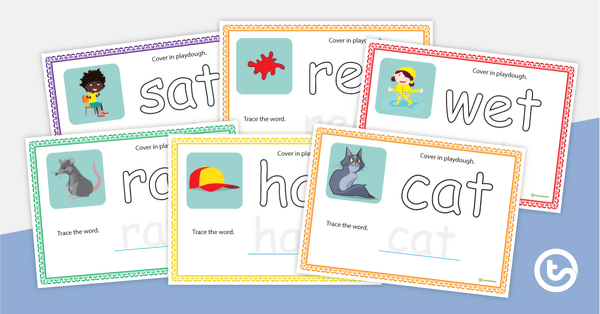
CVC Words – Playdough Mats
45 pages of three-letter consonant-vowel-consonant words for students to practise writing and forming in playdough.
- Plus Plan
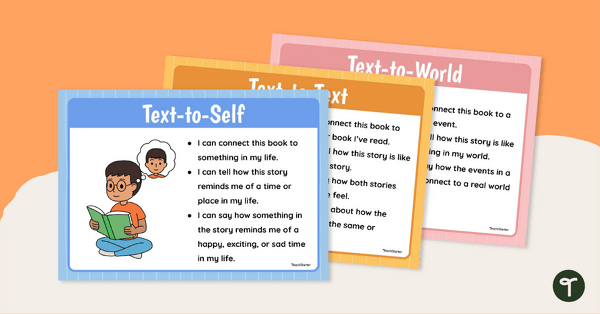
Making Connections Text to Self Poster Pack
Explore making connections with these text to self, text to text and text to world posters for the classroom.
- Plus Plan
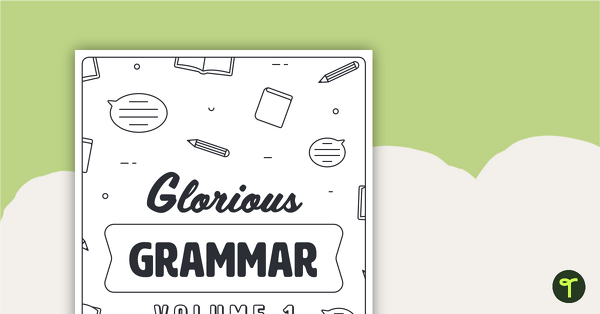
Glorious Grammar (Early Years) Volume 1 – Worksheet Book
A workbook packed with 50 grammar activities for younger years.
- Plus Plan
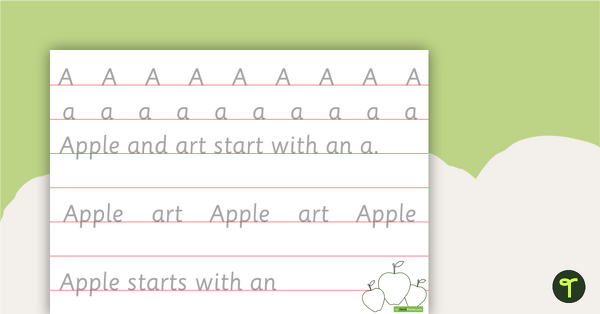
Alphabet Handwriting Sheets - Individual
Handwriting sheets for each letter of the alphabet.
- Free Plan
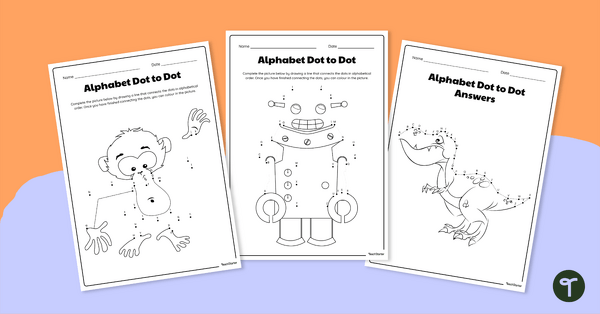
Dot-to-Dot Alphabet Worksheets
Use this set of 3 dot-to-dot worksheets to get your youngest students practising their recognition of the alphabet.
- Plus Plan
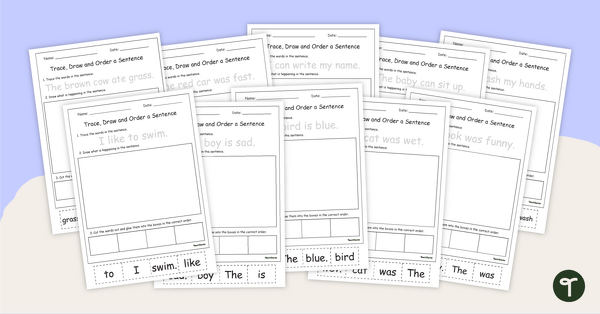
Trace, Draw and Order Sentences Worksheets
Use this set of sentence cut-and-paste worksheets to help your students build simple sentences.
- Free Plan
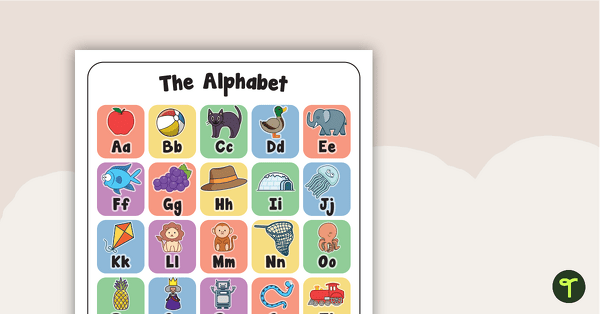
Alphabet Display Poster
A bright and colourful poster to display when introducing the letters of the alphabet.